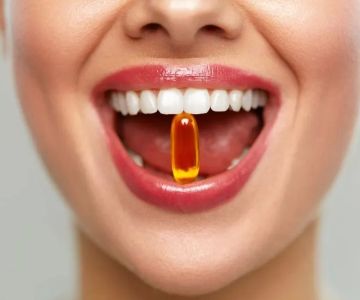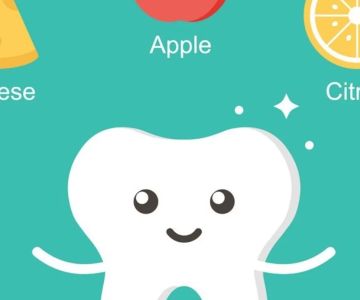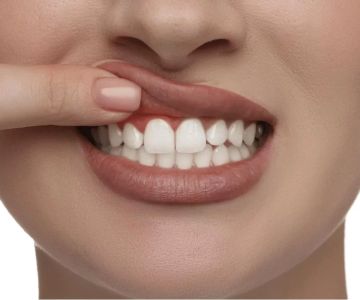How a Poor Diet Affects Oral Health
Good nutrition is essential for overall health, and it plays a significant role in maintaining healthy teeth and gums. Unfortunately, a poor diet can have detrimental effects on oral health. Many people may not realize the direct link between their eating habits and the condition of their teeth. In this article, we’ll explore how a poor diet affects oral health, what specific foods contribute to dental issues, and practical steps you can take to protect your oral health.
1. The Connection Between Diet and Oral Health
Our diet directly impacts the health of our teeth and gums. What we eat and drink affects the pH levels in the mouth, the buildup of plaque, and the growth of bacteria, all of which contribute to dental health problems. A diet high in sugars, carbohydrates, and acids can create an environment that promotes tooth decay and gum disease.
When we consume sugary or acidic foods, they interact with bacteria in our mouths, leading to the production of acids that weaken tooth enamel. Over time, this can cause cavities, tooth sensitivity, and other oral health issues. Additionally, the bacteria that thrive on sugary foods can cause gum infections, leading to conditions like gingivitis and periodontitis.
2. Foods That Contribute to Oral Health Problems
Several common foods and drinks contribute to poor oral health:
- Sugary Snacks and Beverages: Sweets like candies, cookies, and sugary drinks provide an easy food source for harmful bacteria. These foods can stick to your teeth and encourage bacteria to thrive, which increases the risk of cavities.
- Starches and Refined Carbs: Foods like white bread, chips, and pasta can break down into sugars in the mouth. These simple carbohydrates feed the harmful bacteria that cause plaque and cavities.
- Citrus Fruits: While citrus fruits are a great source of Vitamin C, their acidic nature can erode tooth enamel when consumed in excess. Eating citrus fruits in moderation and rinsing the mouth with water afterward can reduce the risk of enamel damage.
- Carbonated Drinks: Soda and other sugary carbonated beverages are a double threat to dental health. The sugar feeds bacteria, and the carbonation increases the acidity in the mouth, further contributing to enamel wear.
- Alcohol: Excessive alcohol consumption can lead to dry mouth, which reduces saliva production. Saliva is essential for neutralizing acids and washing away food particles, so a lack of saliva increases the risk of tooth decay and gum disease.
3. The Impact of a Poor Diet on Gum Health
While poor nutrition can lead to tooth decay, it can also have a significant impact on gum health. A diet low in essential vitamins and minerals can make gums more vulnerable to infections and inflammation. For example, a deficiency in Vitamin C can cause scurvy, leading to swollen and bleeding gums. Inadequate calcium intake can also weaken the jawbone, which may result in loose teeth or gum recession over time.
Gum disease, often referred to as periodontal disease, can start with gingivitis, which causes red, swollen, and bleeding gums. If left untreated, it can progress to more severe conditions that affect the supporting structures of the teeth, including the jawbone. A poor diet that lacks key nutrients like calcium, Vitamin D, and antioxidants can compromise the immune system, making it harder for the body to fight off infections, including those in the gums.
4. How to Protect Your Oral Health Through Diet
Fortunately, making smarter food choices can help protect your oral health. Here are some tips to maintain healthy teeth and gums:
- Eat a Balanced Diet: Focus on eating a variety of nutrient-dense foods, including fruits, vegetables, whole grains, lean proteins, and low-fat dairy. These foods provide the vitamins and minerals needed for strong teeth and gums.
- Limit Sugary and Acidic Foods: Reduce your intake of sugary snacks and acidic beverages. If you do consume them, try to brush your teeth afterward or rinse your mouth with water to help neutralize the acids.
- Drink Plenty of Water: Drinking water throughout the day helps keep your mouth hydrated and washes away food particles. It also promotes saliva production, which is essential for neutralizing acids and protecting tooth enamel.
- Include Calcium-Rich Foods: Calcium helps strengthen your teeth and bones. Include dairy products, leafy greens, and fortified foods in your diet to support your oral health.
- Get Enough Vitamin C: Vitamin C is vital for gum health. Include citrus fruits, berries, and leafy greens in your diet to boost your immune system and keep your gums healthy.
- Limit Alcohol Consumption: Moderation is key when it comes to alcohol. Drinking in excess can lead to dry mouth and increase the risk of oral health issues.
5. The Importance of Regular Dental Checkups
While diet plays a crucial role in oral health, it is not the only factor. Regular dental checkups are essential for detecting and addressing potential oral health issues early. Your dentist can help monitor the condition of your teeth and gums and recommend appropriate treatments or lifestyle changes to prevent future problems. Additionally, routine cleanings can remove plaque and tartar buildup, reducing the risk of cavities and gum disease.
6. A Personal Story: How Diet Impacted My Oral Health
Many people don’t realize the significant impact that diet can have on their oral health until they experience problems firsthand. One such person is Sarah, a busy professional who, for years, lived off fast food and sugary snacks. She began to notice that her gums were bleeding when she brushed her teeth and that her teeth felt more sensitive. After a visit to the dentist, she learned that her diet had contributed to early-stage gum disease and enamel erosion. Sarah made significant changes to her diet, cutting back on sugary foods and incorporating more calcium and Vitamin C-rich foods into her meals. With time, she noticed improvements in her gum health and tooth sensitivity, and her dentist praised her for making better dietary choices.
7. Conclusion: The Power of a Healthy Diet for Oral Health
In conclusion, the food you eat plays a vital role in the health of your teeth and gums. A poor diet can lead to a variety of oral health problems, including cavities, gum disease, and enamel erosion. By making conscious dietary choices and incorporating nutrient-dense foods into your meals, you can significantly improve and protect your oral health. Remember, regular dental visits are also essential for maintaining a healthy smile. Your diet and oral hygiene habits work hand-in-hand to ensure that your teeth and gums stay strong and vibrant for years to come.







 Pediatric Dental Associates of Ambler4.0 (612 review)
Pediatric Dental Associates of Ambler4.0 (612 review) Arizona Orthodontic Centers5.0 (1756 review)
Arizona Orthodontic Centers5.0 (1756 review) Sage Dental of Loganville4.0 (29 review)
Sage Dental of Loganville4.0 (29 review) Thai & Kiourtsis Orthodontics5.0 (66 review)
Thai & Kiourtsis Orthodontics5.0 (66 review) UI Health Mile Square Health Center - Primary and Immediate Care3.0 (13 review)
UI Health Mile Square Health Center - Primary and Immediate Care3.0 (13 review) Oswego Commons Family Dental4.0 (972 review)
Oswego Commons Family Dental4.0 (972 review) The Importance of Oral Health Education During Pregnancy for a Healthy Pregnancy
The Importance of Oral Health Education During Pregnancy for a Healthy Pregnancy Best Tips for Brushing Your Teeth Properly for Healthy Gums: Essential Techniques for Oral Health
Best Tips for Brushing Your Teeth Properly for Healthy Gums: Essential Techniques for Oral Health Why Skipping Dental Checkups Can Lead to Bigger Oral Health Problems
Why Skipping Dental Checkups Can Lead to Bigger Oral Health Problems Advantages of Porcelain Dental Restorations
Advantages of Porcelain Dental Restorations How Can Diabetes Cause Tooth and Gum Problems? Preventing and Managing Oral Health Issues
How Can Diabetes Cause Tooth and Gum Problems? Preventing and Managing Oral Health Issues Healthy Habits for Promoting Good Oral Health and Hygiene: Tips for a Healthy Smile
Healthy Habits for Promoting Good Oral Health and Hygiene: Tips for a Healthy Smile